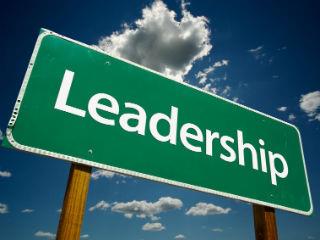A young person could almost be forgiven for feeling despair and hopelessness today. Everywhere they look, there is escalating inequality and a lack of opportunity

Responsible leaders must develop empathy and solidarity with all people they serve, so that they will forge collective benefits that enlarge the pie for everyone. Again, volunteerism and community engagement are crucial. Unfortunately, with social media and an overabundance of choice, people are easily conditioned to only seek out interactions with people they “like” or to “friend” people of similar views or backgrounds. This is the exact opposite of the desired outcome, and can lead to irresponsible leaders with low social capital, and low empathy, who see the world as a fixed pie that must be divided up with the largest slice going to themselves and people like them. The future of the world, particularly the one that the young will inherit, must be defined by what we share, not our superficial differences.
by
Rawan Al-Butairi*
In certain regions and countries, the problem is more acute; from hyperinflation and a collapsed economy in Venezuela to an Arab Spring in Egypt which toppled a government but ultimately has yet to improve the lives of ordinary Egyptians. In fact, with a recently de-pegged currency and an IMF bailout, it will ostensibly get much worse there before it starts to get better.
At the time, many pundits argued that the 2011 Arab Spring was about people in the region demanding greater democracy and liberal freedom. However, I think this misses the heart of the problem. At that time, Egypt was still suffering from the aftermath of the 2008 financial crisis, with important industries such as tourism still far from recovery. Moreover, large increases in food and raw material prices caused a huge trade imbalance (Egypt- as well as Venezuala - is a significant net importer of food).
With the rising cost of food, an unsustainable trade imbalance leading to unaffordable domestic subsidy programs, an overly concentrated economic model susceptible to crippling exogenous shocks, and a growing population to “feed”, the situation mirrored the predictable fall of a neatly stacked set of domino chips. These countries simply ran out of room and ran out of time to modernize their economies to provide opportunities for their growing young population.
Leaders fell back on the status quo, too afraid, too self-interested, or too corrupt to make the difficult trade-off decisions to fix the numerous structural imbalances. These were tragic and epic failures.
In this context, what does responsible leadership mean? While it is tempting to provide the never incorrect “it depends” answer, I believe there are two universal and key themes.
First, globalization, like capitalism, must be effectively managed to be more inclusive. Globalization leads to a bigger overall pie, but responsible leaders must find ways to distribute that pie to more people. Conversely, protectionism and populism to me is just Neo-Luddism, a misguided and ultimately futile tilting against windmills which will only lead to a smaller pie for everyone.
With technological advancement and the oft-touted “knowledge economy” naturally favoring a small group of the highly skilled, government and the private sector can and must do more to even the playing field, including potentially higher minimum wage laws or progressive taxation to fund more targeted and effective social programs. These programs must be financially sustainable, free of corruption, and efficiently enacted.
At a community level, responsible leadership must encourage more volunteerism and gifting – of not just money, but time, knowledge, and mentoring those with less opportunity – and these individuals and institutions must personally lead by example. The leaders and workers of tomorrow need to understand the impact of globalization, both its benefits and its implications, so that workers are motivated to develop competitive skills in an increasingly global and interconnected economy. Inevitably, there will be groups who will be marginalized and unable or unwilling to adapt to this future, and the social programs will need to be creatively designed to reach and help these people.
Second, responsible leaders must have deep social capital, particularly "bridging social capital". According to Robert Putnam, a political scientist and Harvard Kennedy School of Government professor, bridging social capital builds key networks between different social groups. It allows people from different socio-economic backgrounds, genders, ethnicities and cultures to share and exchange ideas and build consensus among groups with diverse interests.
Responsible leaders must develop empathy and solidarity with all people they serve, so that they will forge collective benefits that enlarge the pie for everyone. Again, volunteerism and community engagement are crucial. Unfortunately, with social media and an overabundance of choice, people are easily conditioned to only seek out interactions with people they “like” or to “friend” people of similar views or backgrounds. This is the exact opposite of the desired outcome, and can lead to irresponsible leaders with low social capital, and low empathy, who see the world as a fixed pie that must be divided up with the largest slice going to themselves and people like them. The future of the world, particularly the one that the young will inherit, must be defined by what we share, not our superficial differences.
So what, again, is a responsible leader?
In summary, a responsible leader to me is person who has abundant social capital, an intrinsic desire to maximize the economic pie to create opportunities for everyone, someone who is able to effectively manage globalization, and looks to build bridges instead of walls. He or she will enable hope to once again flourish within the sea of hopelessness, and turn despair into optimism.
*Financial analyst, Saudi Aramco
**First published in weforum.org


